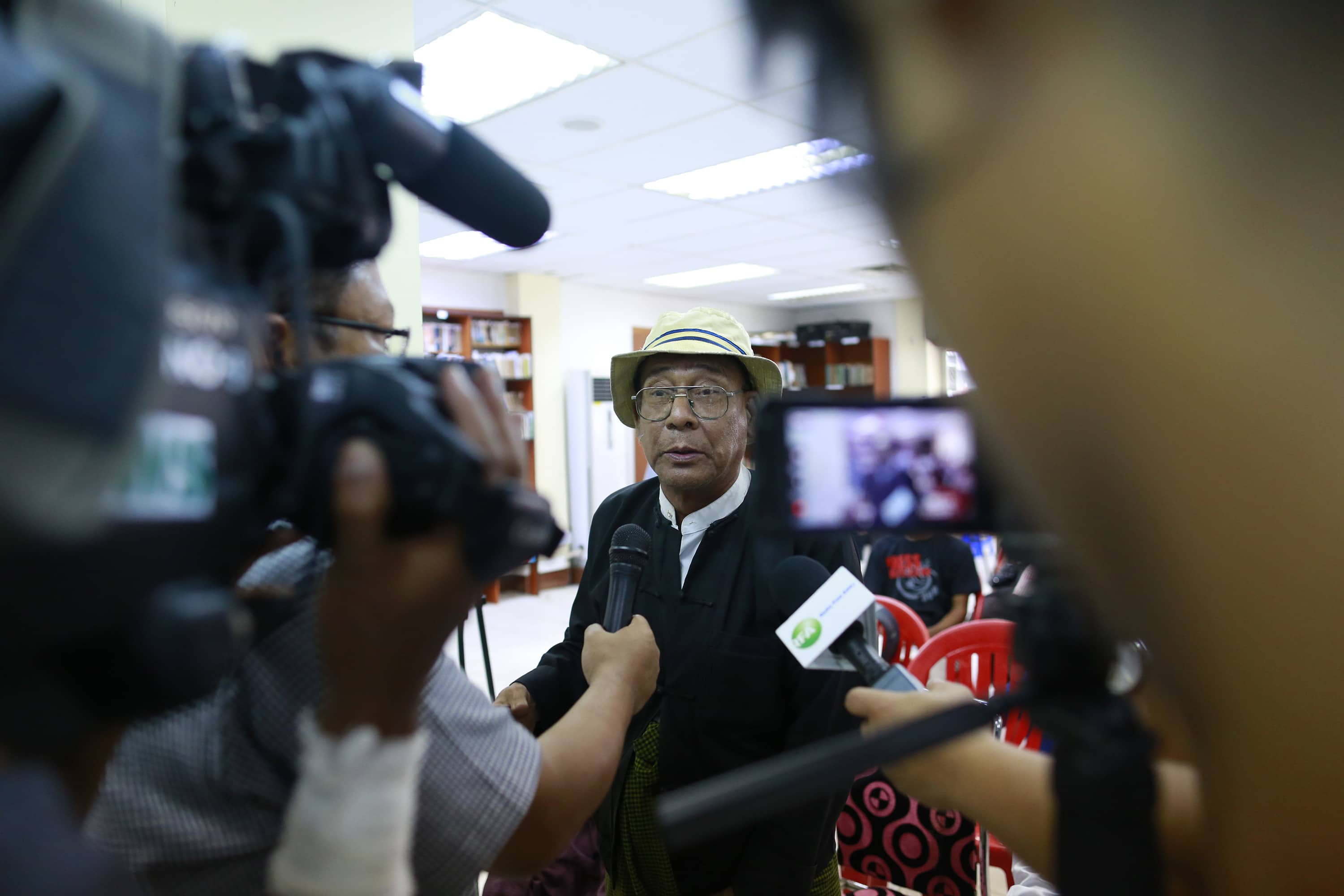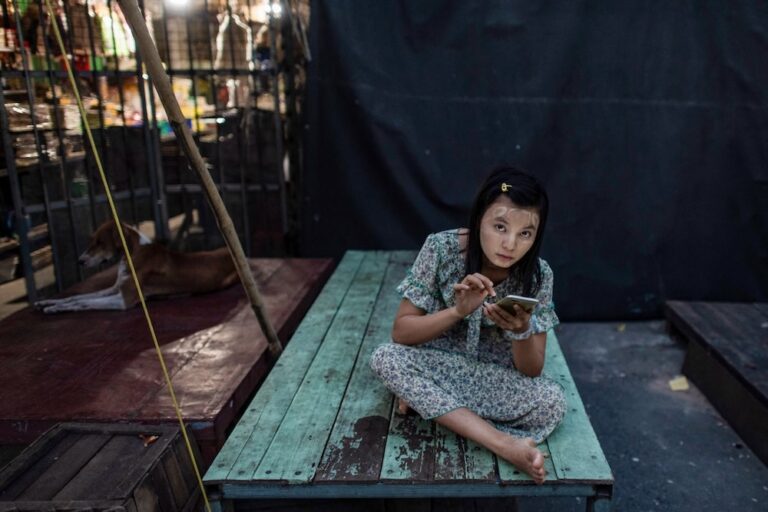The chief executive officer and four journalists from "Unity Journal" have been sentenced to 10 years in jail with hard labour over a report earlier this year that a military-owned factory was producing chemical weapons.
A court in Magway Region has sentenced the chief executive officer and four journalists from Unity Journal to 10 years in jail with hard labour over a report earlier this year that a military-owned factory was producing chemical weapons.
The sentences imposed on the five by a court in Pakkoku on July 10, 2014 came after their convictions for breaching the 1923 colonial-era Official Secrets Act, trespassing in a restricted area and taking photos of a Defence Ministry facility without permission.
They had been on trial since February 14 after being arrested the previous month over the weekly publication’s report about Defence Product Factory No. 24 in Pauk Township, Magway Region.
Those sentenced included journalist U Ya Zar Oo, 30, who said as he was being led from the court that among the cases brought against reporters since the government of President U Thein Sein came to power “ours is the worst”.
U Ya Zar Oo said the judiciary was under the influence of the government and the people would lose respect for the judicial system because of the conviction.
“The situation for reporters is very difficult; I want to say that the judiciary and the government have colluded to sentence us for 10 years,” he said.
Also sentenced were Unity’s CEO U Tin San and journalists, U Paing Thet Kyaw, U Sithu Soe and U Lu Maw Naing.
The five were represented by lawyer U Thein Zaw Aung, who said he planned to lodge an appeal against the convictions.
The charges against the five have generated national and international controversy and have come amid indications of a backlash in the government over moves towards greater media freedom.
At an international media conference in Yangon in March, government spokesperson and Deputy Information Minister U Ye Htut defended the arrest of the five, saying the case was a defence matter and not an issue involving media freedom.
“I think the Unity journal case is a matter of national security,” U Ye Htut said at the time. “I think the United States government would react with the same action if it was concerning national security,” he said.



